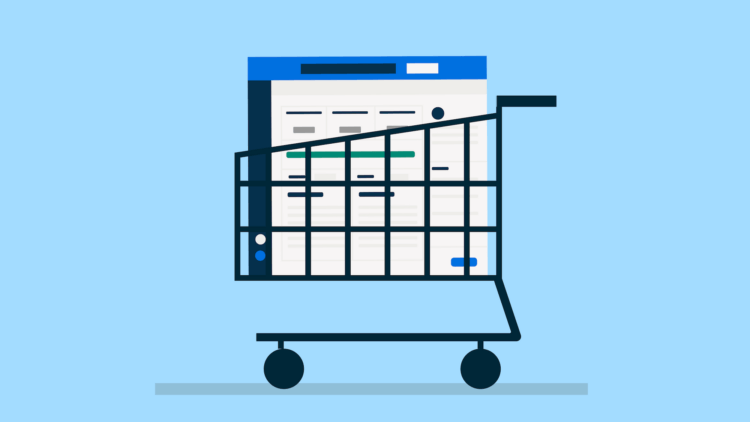Law firms increasingly rely on technology to manage their operations efficiently. Software solutions like case management, time tracking, and billing have become indispensable. However, a crucial question often overlooked in the excitement of digitising legal processes is who owns the data you input into these systems, and how portable is it?
Understanding data ownership
At its core, data ownership concerns the legal rights and complete control over a particular digital data set. In the context of law firms, this data can range from sensitive client information to case notes, billing records, and proprietary firm strategies. Unsurprisingly, law firms must have unequivocal ownership of their data, considering the confidentiality and ethical obligations they bear to their clients.
However, the lines of ownership can blur when data is stored and managed through third-party legal software providers. This underscores the need for clear contractual agreements that specify data ownership rights. These agreements provide a sense of security and protection, ensuring that the firm’s interests and those of its clients are adequately protected.

The importance of data portability
Data portability is closely linked to data ownership—the ability to transfer data from one system to another without hindrance quickly. For law firms, data portability is essential for several reasons:
- Flexibility: As firms grow or their needs change, they may find that their current software no longer meets their demands. Data portability ensures that transitioning to a more suitable solution is as seamless as possible.
- Backups and Security: Exporting data enables firms to create backups independently of their software providers, adding an extra layer of security against data loss or breaches.
- Regulatory Compliance: In some jurisdictions, regulations grant individuals the right to access or transfer personal data from one service provider to another. Law firms must ensure their software providers can facilitate compliance with such regulations.
Read my blog, Don’t Get Duped: Smart Questions to Ask Before Switching Legal Tech.
You may like these posts
Asking the right questions
When discussing the provisions for data management with a software provider, UK law firms must scrutinise the responses carefully. Understanding the nuances in the provider’s answers can help ensure that the firm’s interests and those of its clients are adequately protected.
Here’s what to watch out for in the responses to key questions concerning data ownership and portability:
- Who legally owns the data entered into the provider’s system?
Watch out for: Vague or non-specific language that doesn’t explicitly state that the law firm retains ownership of all data entered. Ideally, the provider’s response should unequivocally affirm the firm’s ownership rights.
- What happens to the data if the firm decides to terminate the contract?
Watch out for: Terms that imply data retention by the provider after contract termination or clauses that make data retrieval cumbersome or conditional upon additional fees. The response should clearly outline a smooth and complete data return process to the firm upon termination.
- How easily can the firm export data, and in what formats?
Watch out for: Limited export options or formats that are not compatible with other systems, making it difficult for the firm to use their data elsewhere. Look for responses indicating a range of standard, open-format options (e.g., CSV, XML, PDF) that ensure usability across different platforms.
- Are there any costs associated with exporting data from the system?
Watch out for: High fees or convoluted pricing structures related to data export. While it’s reasonable for providers to charge for extensive data extraction services, firms should be wary of any practices that seem designed to deter them from exercising their right to data portability.
- How does the provider ensure the security of data during transfer?
Watch out for: Generic assurances without specific safety protocols or standards mentioned. Providers should be able to articulate the encryption methods, secure transfer protocols (e.g., SSL/TLS), and other data protection measures they employ to safeguard data during export or transfer processes.
Read more: Navigating The Maze Of Vendor Lock-In: Strategies And Solutions For UK Law Firms
Best practices for law firms
To safeguard their interests and those of their clients, law firms should adopt the following best practices:
- Review Contracts Carefully: Pay close attention to data ownership and portability terms. Consult with counsel if any provisions seem unclear or unfavourable.
- Audit Compliance and Security Standards: Ensure that the software provider’s practices align with industry standards like GDPR in the UK, which places emphasis on data protection and user rights.
- Plan for the Future: When choosing a software solution, consider potential future needs and challenges related to data portability and ownership.
Read my blog, The Ins and Outs of Long-Term Fixed Legal Software Contracts, for more insight on legal software contracts.
Conclusion
Data is one of the most valuable assets a law firm possesses. Selecting a software provider is not just about the features and functionalities; it’s also about ensuring your firm maintains control over its data. Law firms can protect their client’s interests by prioritising data ownership and portability in their technology choices, providing peace of mind in a world where data is king.
Book a Demo
See exactly how Clio can help your firm by scheduling a personalised product walkthrough with one of our Clio experts.
See Clio in ActionWe published this blog post in November 2024. Last updated: .
Categorized in: Business
Stuck in a contract with the wrong legal software?
Get a credit of up to 6 months* to offset the remaining cost of your current software contract when you switch to Clio.
Learn More







